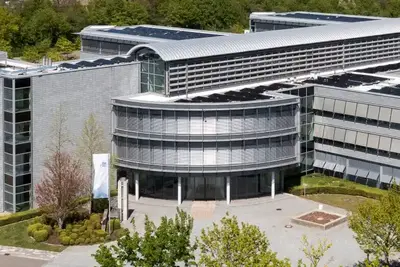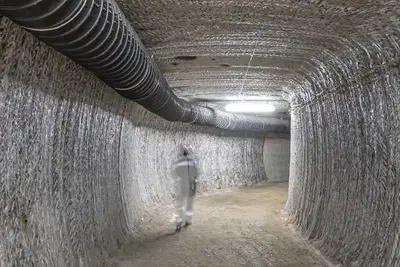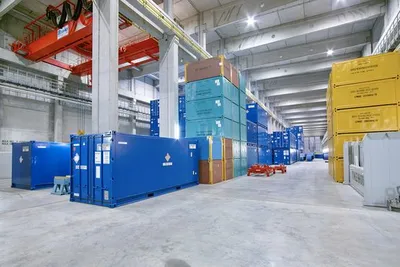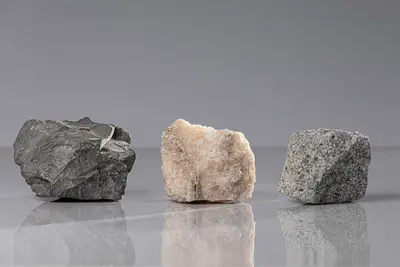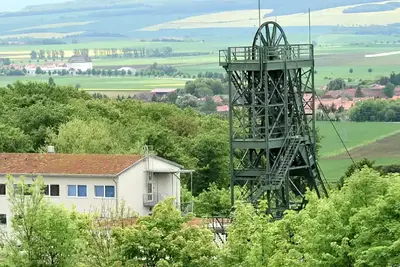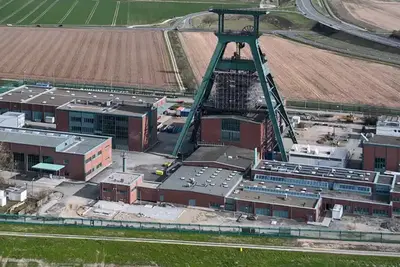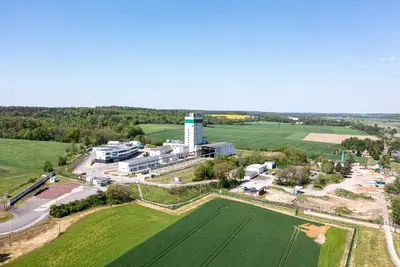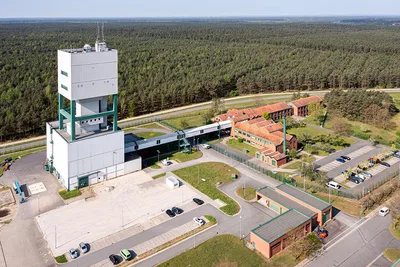Radioactive waste for the Konrad repository
The Konrad repository is licensed for a volume of 303,000 cubic metres of packaged low- and intermediate-level radioactive waste (according to the licence: radioactive waste with negligible heat generation). This waste must not exceed a radioactivity of 5 x 1018 becquerels (5 quintillion decays of atomic nuclei per second) of beta and gamma emitters or 1.5 x 1017 becquerels (150 quadrillion decays of atomic nuclei per second) of alpha emitters. The radioactivity of the waste destined for Konrad makes up less than one percent of the radioactivity of all waste arising in Germany.
Around two thirds of the radioactive waste destined for Konrad originates from nuclear power plants and industrial nuclear facilities – for example, from the production of fuel elements or the decommissioning of nuclear power plants. A further third of the waste originates from public-sector institutions. This includes not only the material from the decommissioning of GDR nuclear power plants and waste from federal research establishments, but also the waste that the federal states are storing at their collecting depots.
Final disposal conditions for Konrad
The safety analyses produced requirements that must be adhered to during the future delivery of waste containers. These requirements have been enshrined in the final disposal conditions for Konrad, and compliance with them is monitored within the framework of product control: waste containers can only be emplaced if they have undergone product control by the BGE and been approved for final disposal.
Requirements for waste containers
The radioactive waste must be professionally packaged in approved containers before it can be loaded, transported and ultimately placed in final disposal. The waste containers must be delivered in an unpressurised state. Another requirement is strict compliance with all radiation protection limit values. This is checked on delivery. Only perfect containers may be placed in final disposal.
Logistics centre for Konrad repository
The planning approval under nuclear law for the Konrad repository includes the stipulation that waste containers be delivered on a “just in time” basis. Additional provisions of the planning approval – for example, in relation to the heat input of individual containers – call for a precisely coordinated emplacement sequence, which forms the basis of a detailed system of delivery logistics. The Konrad repository site is far too small to accommodate a logistics centre. Only a buffer warehouse will be constructed there in order to absorb temporary stoppages, for example due to a breakdown. At the logistics centre for the Konrad repository, batches can be consolidated in the required form for emplacement. Although the Konrad repository can also be operated using decentralised delivery logistics, the logistics centre makes it easier to implement the timely delivery of containers that are suitable for the repository.
The coalition agreement between the CDU and CSU parties and the SPD for the 19th parliamentary term proposes a logistics centre for the Konrad mine. The Federal Environment Ministry indicates that the “concept for the disposal of radioactive waste in the Konrad repository [will be] optimised by the decision to create a logistics centre for this waste”.
Section 3(3) sentence 3 of the Waste Management Transfer Act (EntsorgÜG) – which was adopted by a large majority of the German Bundestag on 27 January 2017 and entered into force on 16 June 2017 – permits the BGZ Gesellschaft für Zwischenlagerung mbH to “construct a central logistics hub for radioactive waste with negligible heat generation as a receiving warehouse for the Konrad repository”.
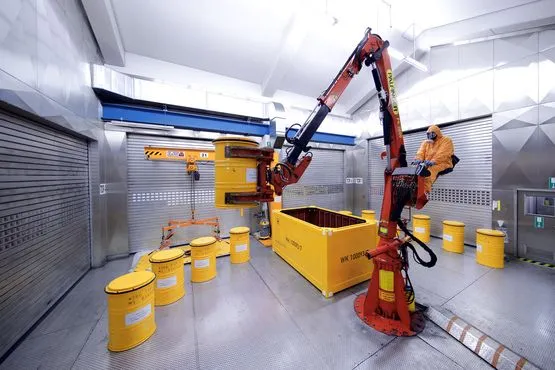
Radioactive waste must be professionally processed and packaged for final disposal

As seen here in Lubmin, radioactive waste must be stored in approved and monitored interim storage facilities until final disposal

